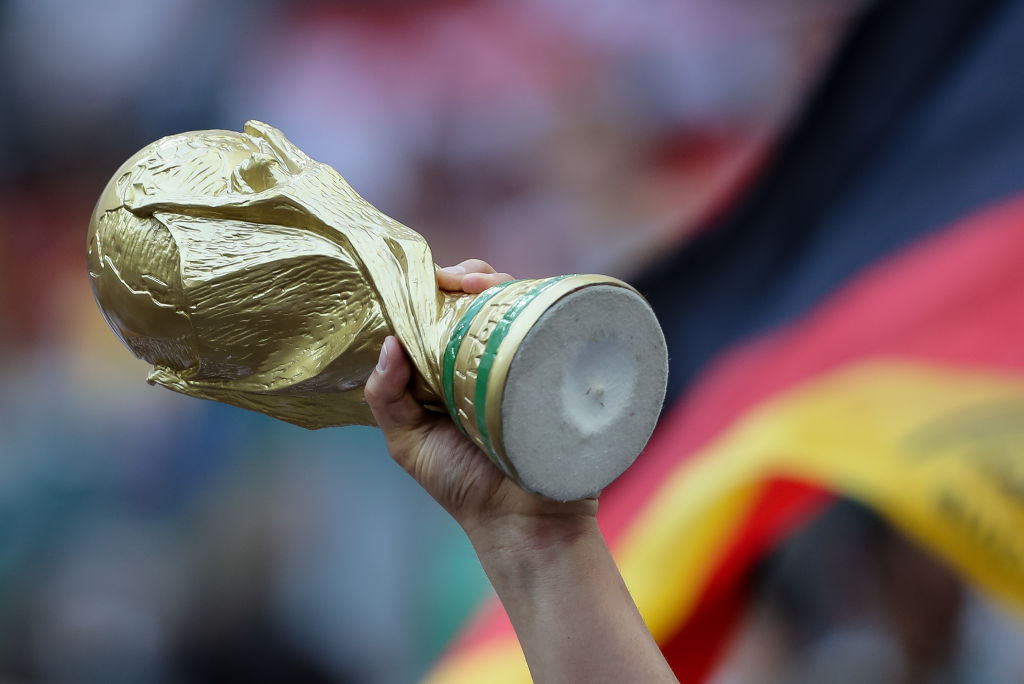Why Saudi Arabia Is Set to Host the 2034 FIFA World Cup - 4 minutes read

GENEVA — Saudi Arabia is all but certain to host the men's 2034 World Cup after the Australian soccer federation declined to enter the bidding contest.
FIFA had set a Tuesday deadline to submit a bid to host the tournament, but Australia's decision to pull out leaves Saudi Arabia as the only declared candidate.
“We have explored the opportunity to bid to host the FIFA World Cup and — having taken all factors into consideration — we have reached the conclusion not to do so for the 2034 competition,” Football Australia said in a statement.
FIFA still needs to rubber stamp Saudi Arabia as the host — a decision that is likely to be made next year — but victory now seems a formality for the oil-rich kingdom. It would be the culmination of Saudi Arabia's ambitious drive to become a major player in global sports, having already spent massive amounts on bringing in dozens of star soccer players to its domestic league, buying English soccer club Newcastle, launching the breakaway LIV Golf tour and hosting major boxing fights.
The sports spending program approved by Saudi Crown Prince Mohammed bin Salman has been described as sportswashing to soften a national image often associated with its record on women's rights and the 2018 killing of journalist Jamal Khashoggi.
FIFA president Gianni Infantino has built close ties to Saudi soccer and the crown prince personally, and has long been seen as trying to steer the world soccer body's competitions toward the kingdom.
When awarding the 2030 World Cup to a joint bid by Spain, Portugal and Morocco — which will also feature games in South America — FIFA decided to fast-track the 2034 hosting race earlier this month with only member federations in Asia and Oceania eligible to bid. The tight deadline gave them less than four weeks to enter the race by Tuesday and just one month more to sign a bidding agreement that requires government support.
Within hours of the FIFA announcement, the Saudi soccer federation said it was in and the Asian Football Confederation (AFC) — which includes Australia — said it was backing the kingdom to bring the World Cup back to the Middle East after neighboring Qatar hosted the 2022 edition.
Qatar hosted in November and December, in the heart of the European club soccer season, to avoid extreme heat in the summer months and a Saudi tournament likely also will be moved from the traditional June-July period.
Read More: Weary and Thirsty, World Cup Fans Try to Find Joy at a Complicated Tournament
Indonesia’s football association initially showed interest in a joint bid with Australia, potentially alongside Malaysia and Singapore, but that faded when Indonesia instead backed Saudi Arabia.
Australia will instead attempt to secure hosting rights for the 2029 Club World Cup — which will relaunch with a new format in 2025, featuring 32 teams playing in the tournament every four years — and the 2026 Women’s Asian Cup.
“We believe we are in a strong position to host the oldest women’s international competition in the world, the AFC Women’s Asian Cup 2026, and then welcome the greatest teams in world football for the 2029 FIFA Club World Cup," the FA statement said.
Australia and New Zealand successfully co-hosted the Women's World Cup in July and August. Brisbane, Queensland state, is due to become the third Australian city to host the Olympics when it stages the 2032 Summer Games.
Saudi Arabia also will host the men's Asian Cup in 2027 and has started a widespread construction program to build and renovate stadiums that likely also will be used for the World Cup. FIFA's bidding documents say 14 stadiums are needed for the 48-team tournament.
After Qatar's World Cup was dogged by years-long allegations of rights abuses of migrant workers needed to build its stadiums, Saudi Arabia's hosting preparation will face some of the same scrutiny.
Read More: Thousands of Migrant Workers Died in Qatar’s Extreme Heat. The World Cup Forced a Reckoning
“With Saudi Arabia’s estimated 13.4 million migrant workers, inadequate labor and heat protections and no unions, no independent human rights monitors, and no press freedom, there is every reason to fear for the lives of those who would build and service stadiums, transit, hotels, and other hosting infrastructure in Saudi Arabia,” Human Rights Watch director of global initiatives Minky Worden said in a recent statement.
“The possibility that FIFA could award Saudi Arabia the 2034 World Cup despite its appalling human rights record and closed door to any monitoring exposes FIFA’s commitments to human rights as a sham,” Worden said.
Source: Time
Powered by NewsAPI.org